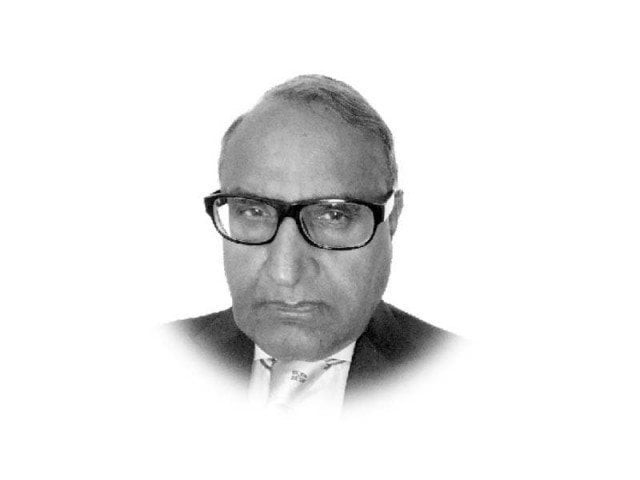Priorities lost
Evidently, this was not a onetime statement, but a well thought-out strategy

Today, on this 73rd birth anniversary of the independent state of Pakistan, it pains one to witness the reverse order of priorities envisioned by its founder, Quaid-i-Azam, Muhammad Ali Jinnah. His first priority was education, followed by economic development. Then came security. After the passage of the Lahore Resolution in 1940, he set out to unveil his plans for building the new state. His first choice of audience was the youth of Lahore, who organised the Special Pakistan Session of Punjab Muslim Students Federation on March 2, 1941. “What are the nation-building departments?” he asked and went on to answer: “There are at least three main pillars which go to make a nation worthy of possessing a territory and running the government.......One is education…. Next, no nation and no people can ever do anything very much without making themselves economically powerful in commerce, trade and industry. And lastly, when you have got that light of knowledge by means of education and when you have made yourselves strong economically and industrially, then you have got to prepare yourselves for your defence against external aggression and to maintain internal security.”
In April the same year, while presiding over the Muslim League session in Madras, he explained how he had successfully completed a five-year plan aimed at “organising the League from one end of the country to the other.” Now it was time for “another five-year plan” focusing on “how best and how quickly to build up the departments of national life of Muslim India.” His Eid message in the following October talked of “building up all departments of national and individual life, such as educational, economic and social uplift.” In the second plan, according to the Quaid’s speech at the Allahabad session of the Muslim League held on April 4, 1942, “we defined our policy, we defined our ideology, we defined our programme.” This train of thought continued at the Delhi session of the League convened on April 24, 1943. He observed: “It is for you all to put your heads together, your council of the All-India Muslim League, and undertake proper and systematic planning, I can only repeat once again for educational uplift, political uplift and cultural uplift of the nation. We as a nation have got to attempt this constructive programme.”
Evidently, this was not a onetime statement, but a well thought-out strategy. There was a strong reiteration of these priorities in his address at the second sitting of the Balochistan Muslim League on July 4, 1943: “For the present the most important thing is education. Knowledge is a greater force than sword. Go and acquire it… The second important thing is trade and commerce. So long as a nation is weak economically, it cannot hope to win the battle of life. So organise and raise economic life. When you have done it successfully then comes sword which we have been wielding for the last 13 centuries.”
The speeches and statements reveal a consistent appreciation of priorities that the nation must determine to move steadily on the road to freedom and development. Historians generally present descriptive analyses of what appear to be radically different phases of the Quaid’s passage to lead the nation to its destiny. But at no point in any phase does one come across a weakening of the resolve to advocate the order of priorities that has since been lost — Education, Economy and Security.
Extracted from the writer’s book, Economic and Social Thinking of the Quaid-i-Azam, published/reprinted 1980/1991, by Research Society of Pakistan, University of the Punjab, Lahore.
Published in The Express Tribune, August 14th, 2020.
Like Opinion & Editorial on Facebook, follow @ETOpEd on Twitter to receive all updates on all our daily pieces.















COMMENTS
Comments are moderated and generally will be posted if they are on-topic and not abusive.
For more information, please see our Comments FAQ